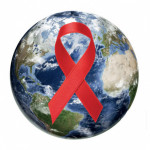In a move that took HIV advocates by surprise and stewed considerable confusion, the Food and Drug Administration (FDA) recently approved a generic formulation of Gilead Sciences’ antiretroviral Truvada (tenofovir disoproxil fumarate/emtricitabine). The June approval is for both HIV treatment and pre-exposure prophylaxis (PrEP).
Teva Pharmaceuticals, which received the generic production rights, was tight-lipped about the company’s plans, while Gilead insisted that the generic formulation would not be available immediately.
“It’s not uncommon in patent settlement agreements for generics to negotiate language permitting full approvals months and years in advance of the settlement license date,” says Tim Horn, deputy executive director of HIV and HCV (hepatitis C virus) programs at Treatment Action Group (TAG). “Regardless, now is the time to start thinking seriously about the advantages, as well as the drawbacks, of generic products to prevent and treat HIV.”
Martin Shimer, RPh, deputy director of the Office of Generic Drug Policy at the FDA, tells POZ that Teva and Gilead may ultimately develop private legal settlements that will dictate the availability of generic Truvada.
The patent for the tenofovir disoproxil fumarate component of Truvada expired in July 2017, and Gilead retains exclusive rights for the drug’s pediatric use until January 2018. The patent for emtricitabine does not expire until 2021. Generic Truvada may not actually hit the market until then.
In the meantime, according to a company statement, “Gilead believes Truvada for PrEP is an important HIV prevention tool, and we remain committed to helping ensure access to our medications for people both at risk of or living with HIV.”







Comments
Comments